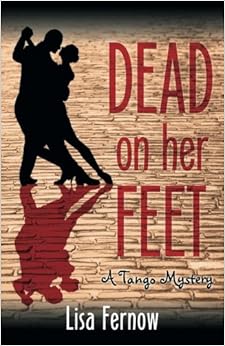A year or so ago, my wife and I were invited to attend a dance program featuring our granddaughter Susannah, who was at that time four years old. That afternoon, as we took our seats in the school auditorium alongside our son and his wife and family, our grandson Charlie (then six years old) crawled up into my lap holding one of his storybooks he had brought from home. Keeping my voice low (things had quieted down and everyone was waiting and watching the stage by that time), I said to him, "Charlie, why'd you bring a book along? Don't you want to watch your sister dance?"
"I might," he said, "and I might not. I think this is going to be B-O-R-I-N-G."
I'm not sure why he needed to spell it out, but I had to admire his foresight. He was prepared for anything. As it turned out, the program was entertaining, even for my grandson--but I later remembered that moment, when I was asked to do a reading from my new book following its "launch" signing at a local bookstore a couple of months ago. I decided that whatever happened that night, I wanted to try hard not to be B-O-R-I-N-G. And sometimes that's easier said than done.
King author and the signing table
I and others at this blog, including my friend Fran Rizer several weeks ago, have written about the good and bad and hilarious things that can happen at a typical bookstore signing. But what about other kinds of booksigning events, ones that include a reading and/or a speech? That kind of gig, my friends, can be a whole different ballgame. You don't want your captive audience to feel like captives.
I know, I know: it's a chance to find out how the author expresses his writing, in his own spoken words. The truth is, though, that I don't find that very interesting. I also doubt that readers are interested in hearing the way I express my own writing, in spoken words. I'd rather read their words, and have them read mine. As a listener, I'd much rather hear authors tell us about the way they plot, and develop characters, and rewrite, and market their work. But maybe that's just me. (I should mention, so you'll know that I'm not completely insensitive, that I certainly don't turn down offers from those places that are kind enough to invite me to do a reading. I get up there and smile and soldier on, and I'm grateful for the invitation. But I make darn sure to keep the excerpt mercifully short.)
Okay, bub--close that book and step away from the podium . . .
How about those events that don't involve a reading? Maybe you're just asked to make a talk to the local Rotary Club, let's say, or to the Friends of the Library, or to a book club, or to a high-school class. Suppose the president or librarian or facilitator or teacher just wants you to tell the audience a little about yourself and your writing and your latest literary accomplishment. What's the best way to do that?
Thank goodness, you will probably find that most listeners in just about any venue seem to enjoy hearing about writers and about the process of writing. (I certainly do.) They also seem to like asking questions. (I do, too.) With any luck, you'll find that very few attendees have brought their own storybooks along with them to read in case you turn out to be B-O-R-I-N-G.
Q's from me to you:
Do any of you share my reluctance to read my own words aloud to a group? Do you enjoy hearing other authors read theirs? (I know many who do.) Do you find such readings inspiring? Enlightening? Nap-inspiring? Would you rather hear instead about how and why these authors write what they do? If you're asked to speak to a library or a class or a civic group, do you offer to do a reading as well? What advice would you give to a beginning writer, about addressing an audience?
I'll close with a sincere "Thank you!" to those who are kind enough to invite us authors to be guest speakers, and a sincere "Good luck!" to my fellow writers with any and all signings/speeches/readings that you perform.
May all of them be F-U-N.
NOTE: I'll be away most of today at an out-of-town booksigning. (Not a reading, just a signing.) Wish me luck . . .
NOTE: I'll be away most of today at an out-of-town booksigning. (Not a reading, just a signing.) Wish me luck . . .





































